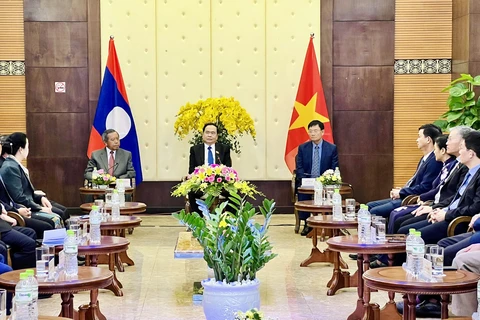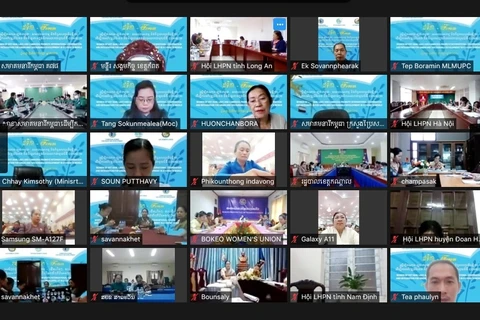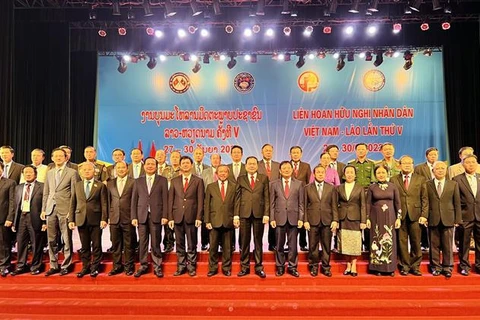Vientiane (VNA) – The World Bank (WB) has lowered Lao economic growth in 2022 to 2.5% from the earlier 3.8% projection in April, reported Vientiane Times.
In East Asia and Pacific October 2022 Economic Update, the bank also forecasts that Laos' gross domestic product (GDP) growth in 2023 will be 3.8%.
According to the WB, economic performance across developing East Asia and the Pacific, including Laos, could be compromised by slowing global demand, rising debt, and a reliance on short-term economic fixes to cushion against food and fuel price increases.
Growth in developing East Asia and the Pacific outside of China is forecast to accelerate to 5.3% in 2022 from 2.6% in 2021.
China, which previously led recovery in the region, is projected to grow by 2.8% in 2022, a sharp deceleration from 8.1% in 2021, the report said.
For the region as a whole, growth is projected to slow to 3.2% this year from 7.2% in 2021, before accelerating to 4.6 percent next year, it added.
The report also noted that Laos, Mongolia and Myanmar have faced more significant exchange rate and inflation pressures than the rest of the region. Laos and Mongolia are most vulnerable in these respects because they were already struggling with high debt.
In Laos, the weakening exchange rate is contributing to inflation, ramping up pressure on low-income families and hindering their chances to rise above poverty.
The global economic slowdown is beginning to dampen demand for exports of commodities and manufactured goods in the region.
According to the World Bank, as countries in the region seek to shield households and firms from higher food and energy prices, current policy measures provide much-needed relief, but add to existing policy distortions.
Controls on food prices and energy subsidies benefit the wealthy and draw government spending away from infrastructure, health and education, it said./.
In East Asia and Pacific October 2022 Economic Update, the bank also forecasts that Laos' gross domestic product (GDP) growth in 2023 will be 3.8%.
According to the WB, economic performance across developing East Asia and the Pacific, including Laos, could be compromised by slowing global demand, rising debt, and a reliance on short-term economic fixes to cushion against food and fuel price increases.
Growth in developing East Asia and the Pacific outside of China is forecast to accelerate to 5.3% in 2022 from 2.6% in 2021.
China, which previously led recovery in the region, is projected to grow by 2.8% in 2022, a sharp deceleration from 8.1% in 2021, the report said.
For the region as a whole, growth is projected to slow to 3.2% this year from 7.2% in 2021, before accelerating to 4.6 percent next year, it added.
The report also noted that Laos, Mongolia and Myanmar have faced more significant exchange rate and inflation pressures than the rest of the region. Laos and Mongolia are most vulnerable in these respects because they were already struggling with high debt.
In Laos, the weakening exchange rate is contributing to inflation, ramping up pressure on low-income families and hindering their chances to rise above poverty.
The global economic slowdown is beginning to dampen demand for exports of commodities and manufactured goods in the region.
According to the World Bank, as countries in the region seek to shield households and firms from higher food and energy prices, current policy measures provide much-needed relief, but add to existing policy distortions.
Controls on food prices and energy subsidies benefit the wealthy and draw government spending away from infrastructure, health and education, it said./.
VNA























